- The Grief Wave
- Posts
- The Grief Wave: Stuck in Loss | October 18 Final Grief Gathering (LA)
The Grief Wave: Stuck in Loss | October 18 Final Grief Gathering (LA)
Grief, change, and resilience in a world that feels both fragile and extraordinary.
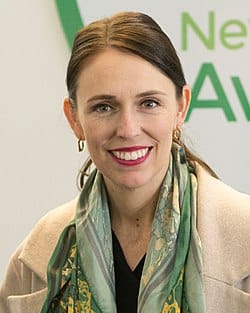
🧭 TL;DR | This Week at a Glance
✨ Profiles & Ideas
🌿 Prime Minister Jacinda Kate Laurell Ardern — Leadership through crisis, change, and the enduring pursuit of justice
🌊 The Tangled Net #15: The Financialization of Everything — When all value becomes extractable
🕯️ Echoes & Endings | Jonathan Lear (1948–2025) — A journey from Aristotle to psychoanalysis, and the radical hope he left behind
📰 News & Reminders
💉 Neglected Form of Diabetes Finally Gets a Name — The fight to classify a condition that doesn’t fit Type 1 or Type 2
🌍 An Upside-Down World — How comfort, technology, and instability made us different from every human who came before
🎉 Events & Gatherings
🌸 Oct 18 — FINAL GRIEF SUPPORT GATHERING OF 2025
Catharsis Theater for Loss and Healing: Grief & Relief (October) — When loss feels overwhelming, community and psychodrama create pathways to healing and renewed hope. (More than 40 gatherings since 2023)
(Free | Culver City, LA)
🤖 Oct 15 — Suicide and AI: Virtual Armchair Discussion with Stacey Freedenthal, PhD, LCSW & Jonathan B. Singer, PhD, LCSW
(Free | Virtual)
🧘 Oct 23 — Mindfulness-Based Stress Reduction with Christiane Wolf, MD, PhD
(Santa Monica)
🔔 Nov 1 — Living Deeply Retreat with Elizabeth Stomp and Lulu Toselli
(Santa Monica & Virtual)
🌅 Dec 3–8 — 2025 Ram Dass Legacy “Open Your Heart in Paradise” Retreat
(Napili Kai Beach Resort, Maui)
💔 The Traumatic Loss Companion Course — An online program for navigating sudden, unexpected, or traumatic loss
(Virtual | Self-Paced)
🌊 California Grief Center
Therapy, groups, Catharsis Theater, and support for every stage of grief.
💌 Dear friends of The Grief Wave,

Facing the hurt — together.
As we step into the final stretch of the year, we’re reminded that grief has its own seasons—marked not only by endings, but by the beginnings they make possible. Each transition carries both absence and renewal, inviting us to notice what remains and what might yet emerge.
This week’s selections reflect how grief weaves through our lives—in the naming of an overlooked illness, in the strangeness of our modern age, in the legacy of a profound thinker, and in the gatherings that hold us together. Grief is never just loss; it is also the thread that binds us to memory, meaning, and the shared hope of beginning again.
✨ Profiles & Ideas
🌿 Prime Minister Jacinda Kate Laurell Ardern
Leadership through crisis, change, and the enduring pursuit of justice
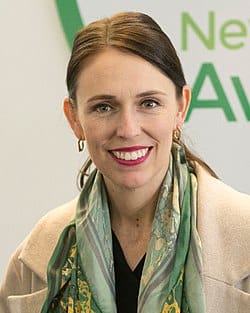
Jacinda Kate Laurell Ardern, 40th Prime Minister of New Zealand
Jacinda Ardern devoted her career to progressive leadership. Entering Parliament in 2008, she became Labour leader in 2017 and, that October, New Zealand’s 40th prime minister—at 37, the world’s youngest female head of government. Representing Mount Albert and later as prime minister, she prioritized child poverty, housing, and climate action, created the Minister for Child Poverty Reduction, and raised the minimum wage.
Her leadership was defined by responses to crisis: after the 2019 Christchurch mosque shootings, she condemned extremism, tightened gun laws, and co-chaired the Christchurch Call with France. During COVID-19, she enforced strict border measures, gaining international attention, and in 2020 led Labour to a decisive majority. Confronting rising costs and political strain, she resigned in January 2023, saying she no longer had “enough in the tank.”
Since leaving office, Ardern has remained active globally as Earthshot Prize trustee, Special Envoy for the Christchurch Call, and a Harvard fellow. Now based in the U.S., she continues advocacy and has authored two books: A Different Kind of Power, a memoir on governance and digital policy, and Mum’s Busy Work, reflecting on the balance of motherhood and public life.
🌊 The Tangled Net #15: The Financialization of Everything
When all value becomes extractable
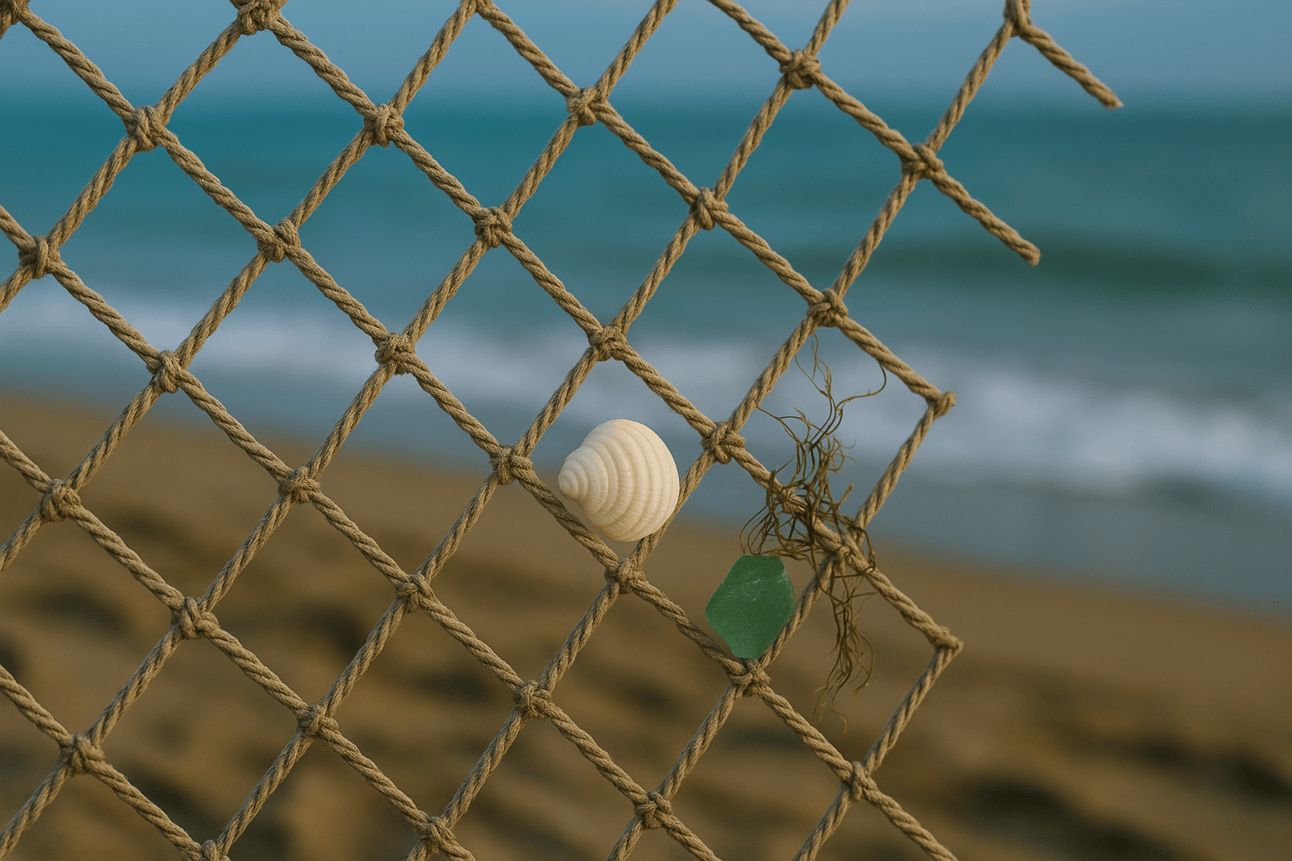
In every tangled net, some knots hold gifts freely given, while others mark transactions recorded and debts yet to be paid.
Financialization’s grief is the hidden story of our age, quietly corroding meaning while redefining what counts as valuable. Communities feel the shift before economists admit it, as homes become “assets,” friendships become “networks,” education becomes “human capital,” and care becomes “wellness markets.” The fracture doesn’t appear as sudden collapse but as subtle translation: a kitchen turned into equity, a relationship into opportunity cost, an identity into brand. What disappears is not memory itself, but the sense that value can exist outside monetization.
Researchers trace the effects in rising loneliness, eroded trust, and mental health in decline. These are not illusions but data—surveys showing higher anxiety, chronic dissatisfaction, and disconnection when every human tie is optimized for return. The grief lingers because language itself has been colonized: inheritance becomes performance, rest becomes optimization, intimacy becomes transaction. The net of meaning frays, even as people insist there must be more.
Our task is to face this truth—acknowledging the pressure, resisting reduction, and listening when people reveal grief in burnout, protests, or quiet refusals. Only then can the next generation inherit not erasure but renewal, where remembering becomes a path toward building, and where value is preserved not as extractable profit but as love, care, and belonging.
🕯️ Echoes & Endings | Jonathan Lear (1948–2025)
A journey from Aristotle to psychoanalysis, and the radical hope he left behind
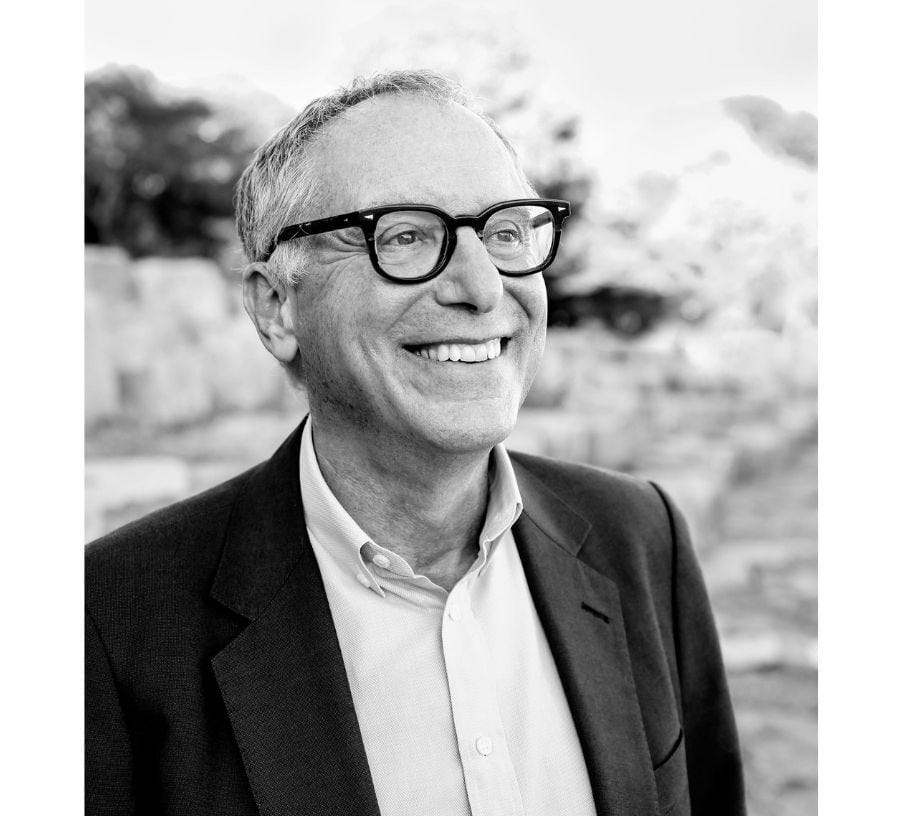
Jonathan Lear by Erielle Bakkum
Jonathan Lear’s legacy is remembered not just in books, but as a testament to rigorous attention joined with humane curiosity. Born in New York City in 1948 and trained in ancient philosophy, he asked a question that reshaped his life: what would it mean to have an inner world, and how would it work? That inquiry led a distinguished Aristotle scholar from Cambridge and Yale into psychoanalytic training and a VA consulting room, proving through decades of work that understanding the mind is not about detachment—it is about lived experience, careful listening, and the courage to face opacity within ourselves.
From his defense of Freud as a serious explorer of the human condition to Radical Hope, where he learned from the Crow Nation how to continue when a way of life collapses, Lear redefined how we think about flourishing amid uncertainty. He joined ancient ethics to modern depth psychology, developed the idea of therapeutic irony, and treated mourning as ethical work—insisting that our attachments and losses shape who we become. His teaching at the University of Chicago’s Committee on Social Thought, clinical practice, and collaborations with the Apsáalooke community turned abstractions into guidance for actual lives.
The mission endures—in every analyst who treats therapy as a manifestation of love, every student who wrestles with Aristotle alongside the unconscious, every person who meets cultural devastation with radical hope rather than despair. Lear’s vision lives on as both milestone and call to action, reminding us that serious thought requires openness, that mourning deserves patience, and that courage includes admitting what we do not yet understand. His work shows that philosophy at its best is not merely argued—it is practiced, so that attention itself becomes a form of care and inquiry a path toward freedom.
📰 News & Reminders
💉 Neglected Form of Diabetes Finally Gets a Name
The fight to classify a condition that doesn’t fit Type 1 or Type 2
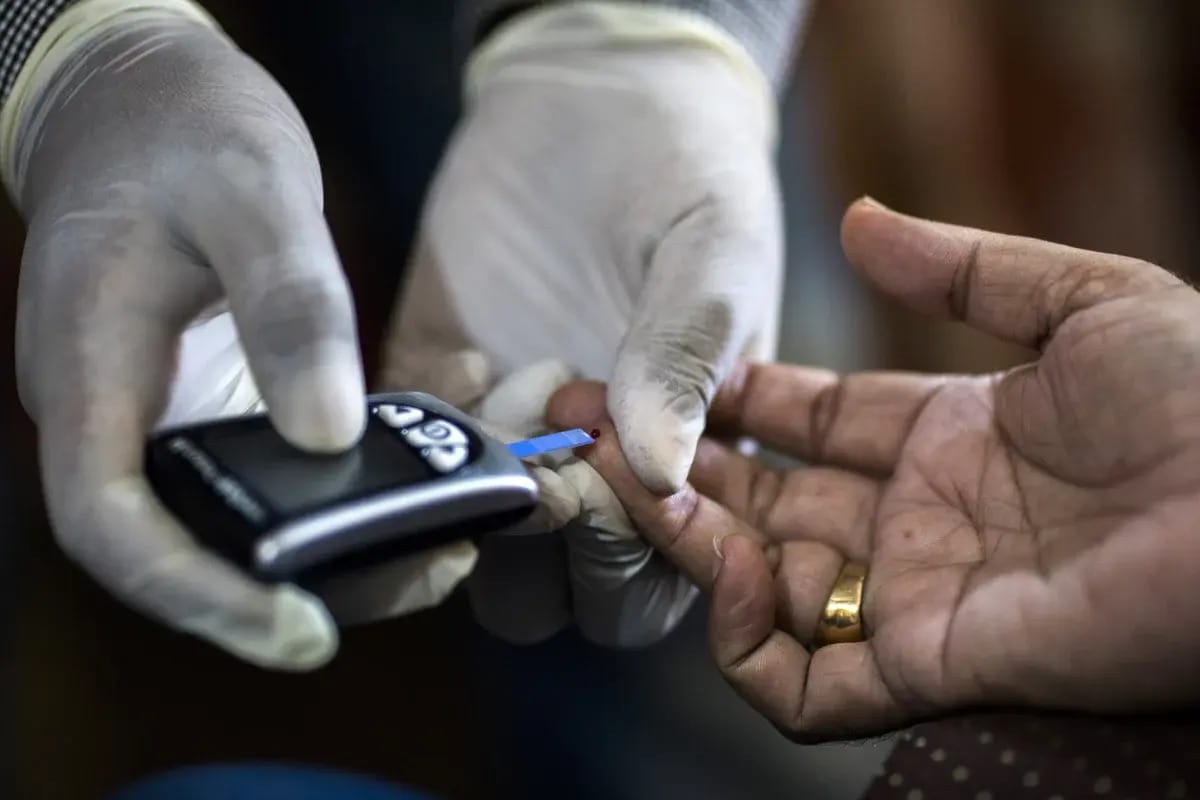
Researchers warn that ongoing malnutrition crises may drive more cases of Type 5 diabetes. Here, a patient receives a blood glucose test during a door-to-door screening program in Haryana, India. Prashanth Vishwanathan/Bloomberg/via Getty Images
In the 1950s, British physician Philip Hugh-Jones identified patients in Jamaica who didn’t fit Type 1 or Type 2 diabetes, describing them as unusually thin, undernourished, yet not prone to ketoacidosis. He called it “Type J,” but the name faded. Seventy years later, researchers estimate as many as 25 million people worldwide may share this condition, shaped by lifelong malnutrition and marked by weak pancreatic function. Now, the International Diabetes Federation has formally recognized it as Type 5 diabetes, urging the World Health Organization and others to adopt the classification.
The stakes extend far beyond naming. Misdiagnosis has led to lethal treatments, with some patients given high doses of insulin despite food insecurity, risking deadly low blood sugar. Researchers stress that Type 5 is distinct from both Type 1 and 2, requiring new treatment approaches. Yet some endocrinologists remain skeptical, warning it could reflect poorly defined Type 2 cases. Still, with food crises intensifying in regions like Gaza, Sudan, and Yemen, advocates argue recognition is urgent, underscoring that this form of diabetes is not inevitable—it is preventable with food.
🌍 An Upside-Down World
How comfort, technology, and instability made us different from every human who came before
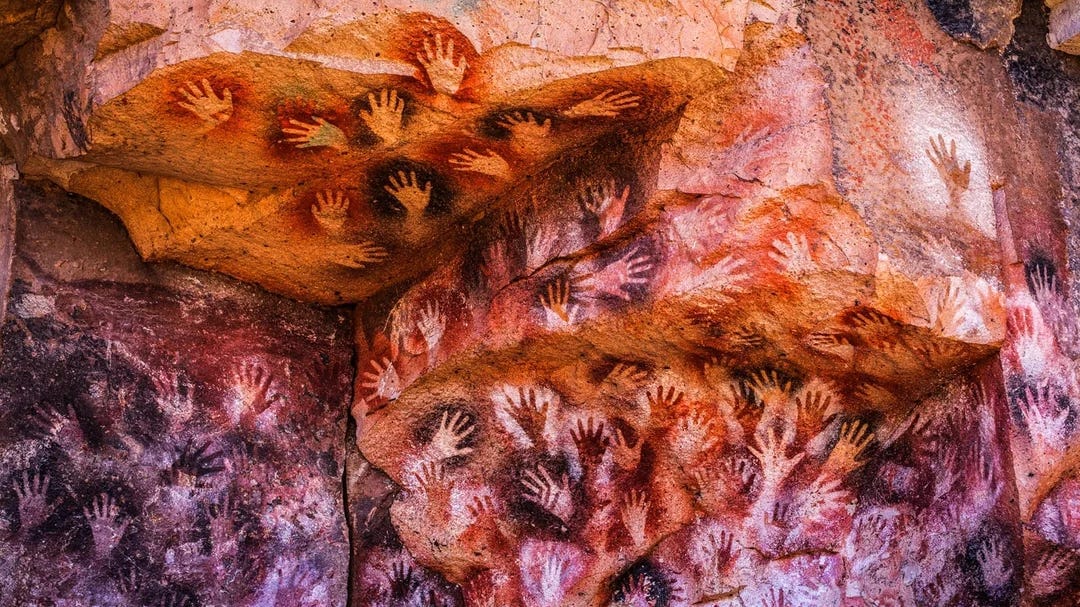
Cueva de las Manos, Argentina, with cave art produced from 7,300 BC to 700 AD.
For the first time, vast numbers of people routinely experience things impossible for 9,497 of the 9,500 human generations: jet lag (named in 1931), travel from London that now takes hours instead of weeks, and instant communication while flying over the ocean. In just the last “11 seconds” of a 24-hour human timeline, computerization, the internet, and AI have remade daily life. We, not our ancestors, are the strange ones.
The transformation is bigger than gadgets. Our lives feel locally stable and predictable, yet the larger world lurches through pandemics, wars, and climate upheaval; information has shifted from few-to-many to many-to-many, fueling conspiracism and polarization; and social comparison now spans billions, amid widening lifestyle differences and a drift from nature.
Read the full essay to see why this era is uniquely comfortable, disorienting, and unprecedented—and what that means for how we understand ourselves.
🎉 Events & Gatherings
🌸 FINAL GRIEF SUPPORT GATHERING OF 2025 - Catharsis Theater for Loss and Healing: Grief & Relief (October)
When loss feels overwhelming, community and psychodrama open the way to proven healing and renewed hope

The Blue Door Theater, Downtown Culver City
To honor our final gathering of the year, this session will be offered free of charge. In a time when the world feels heavy with loss and uncertainty, Catharsis Theater for Loss and Healing provides a monthly space where unfinished grief finds witness, expression, and relief in community. All are welcome.
📅 Saturday, October 18 | 1:00–4:30 PM (arrive 12:30–12:45)
📍 Blue Door Theater, Culver City
What is Catharsis Theater?
Catharsis Theater is a safe, psychodrama-inspired, trauma-informed gathering that draws on psychodrama, sociometry, and other proven group-based methods that emerged as some of the most effective, supportive, and most widely used mental health approaches of the 20th century. We’ve met more than 40 times since 2023 and will continue in 2026.
Psychodrama is reemerging as a powerful way to help people navigate profound grief and loss, just as it once did for returning soldiers after World War II, during the Civil Rights era, in the wake of Hurricane Katrina, and in New York after 9/11. Through Catharsis Theater for Loss and Healing, individuals, families, and communities can once again transform sorrow into connection and resilience, honoring both personal pain and the collective grief of our country.
✨ What makes it unique:
– Not performance, but presence
– Not scripted, but supportive
– Not clinical therapy, but deeply healing
🕯️ Join if you’re ready. Simply come as you are.
With gratitude to ArtsUp! LA for hosting.
🤖 Suicide and AI — Virtual Armchair Discussion with Experts Stacey Freedenthal, PhD, LCSW and Jonathan B. Singer, PhD, LCSW (FREE)
Zoom | October 15, 2025 | 8:00-9:30am PT | 11:00am-12:30pm ET
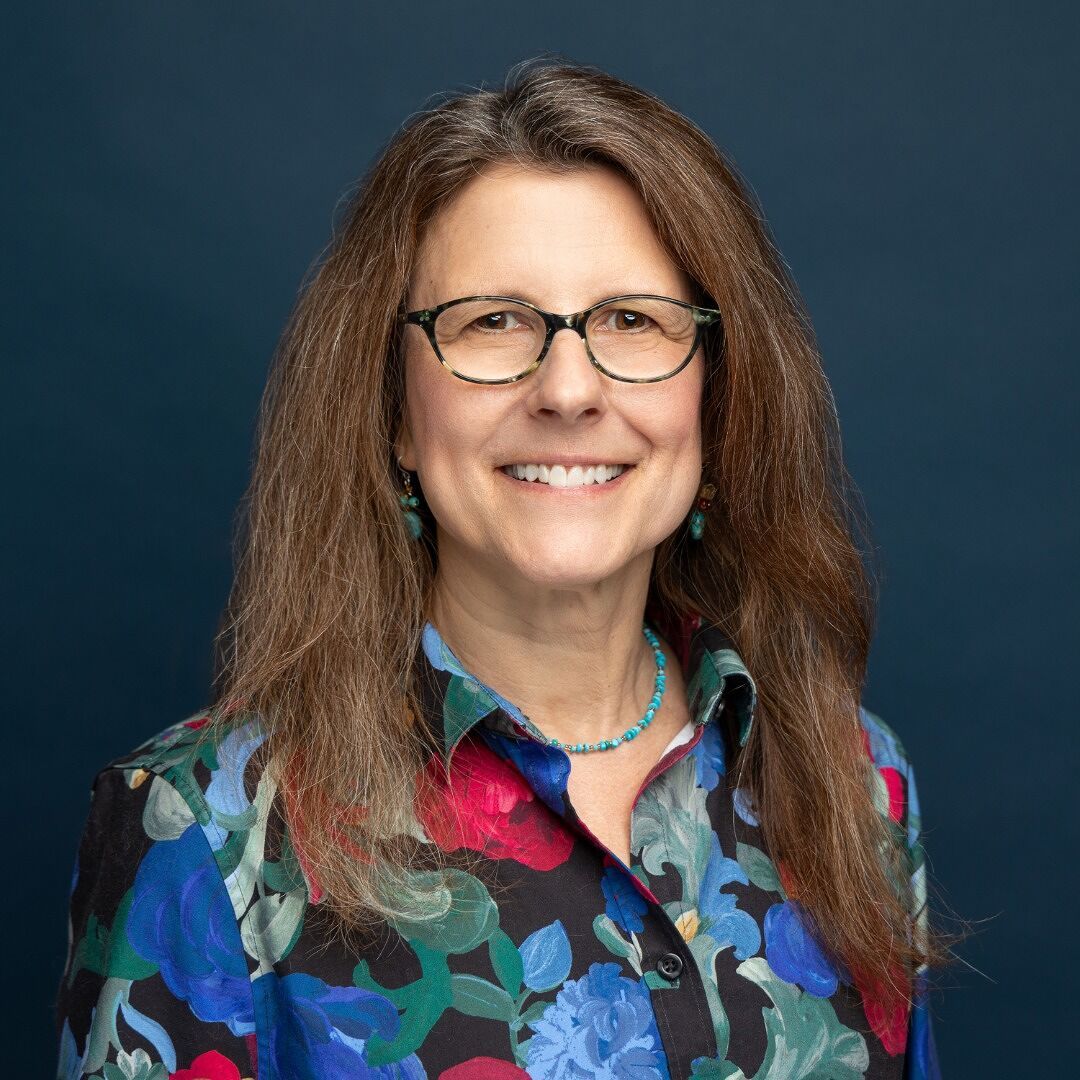
Stacey Freedenthal, PhD, LCSW, is a suicidologist, author, psychotherapist, and professor of social work
Since its beginning, the Suicide and AI discussion has been a gathering for reflection—a space to explore lived experience, scholarship, and practice wisdom at the edge of technology and human suffering.
As we approach October, we meet virtually with Stacey Freedenthal, PhD, LCSW, and Jonathan B. Singer, PhD, LCSW, to unpack the risks and opportunities of generative AI in suicide prevention. This timely conversation welcomes mental health professionals, educators, and scholars seeking tools to use today while planning for a safer tomorrow.
All are invited to join this thoughtful 90-minute exchange of ideas, practice, and community online.
💛 Registration open now. Oct. 15, 2025, 8:00 a.m. PT / 11:00 a.m. ET.
🧘 Mindfulness-Based Stress Reduction with Christiane Wolf, MD, PhD
Santa Monica | October 23-December 18, 2025 | Thursdays 6:30 PM - 9:00 PM PT
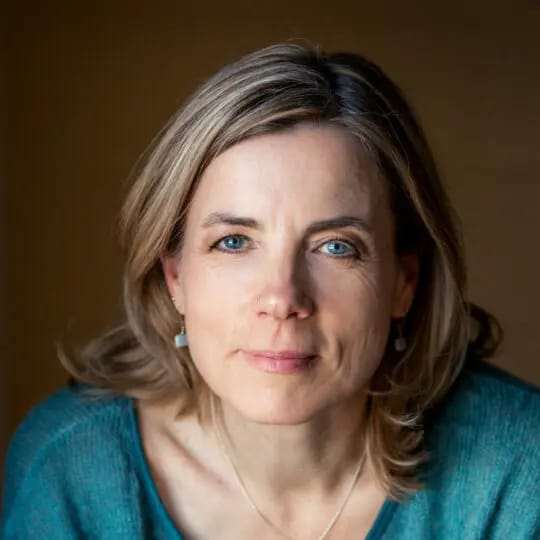
Christiane Wolf, MD, PhD
For over 20 years, InsightLA has offered mindfulness teachings to people from all walks of life—a community gathering to find balance, peace, and well-being.
This fall, we meet at the Santa Monica Meditation Center for an eight-week Mindfulness-Based Stress Reduction & Mindful Self-Compassion series with Christiane Wolf, MD, PhD. Rooted in decades of research, this program supports greater resilience, healing, and connection in daily life.
Each session welcomes both newcomers and longtime practitioners, offering guided practices, reflection, and tools for managing stress, pain, and uncertainty.
💛 Registration open now. Thursdays, Oct. 23–Dec. 18, 2025, Santa Monica.
🔔 Living Deeply Retreat with Elizabeth Stomp and Lulu Toselli
Santa Monica & Online (Hybrid) | Saturday, November 1, 2025

InsightLA brings mindfulness and compassion to Los Angeles and beyond through practice and community.
For over 20 years, InsightLA has welcomed people from all backgrounds into a community of mindfulness—spaces to pause, restore, and reconnect with the heart.
This fall, we gather at the Benedict Canyon Retreat House for a daylong Living Deeply Retreat with Elizabeth Stomp and Lulu Toselli. Rooted in mindfulness and compassion, the program offers guided meditation, movement, walking practice, and gentle silence in a peaceful natural setting.
Each retreat invites both newcomers and longtime practitioners, providing tools for steadiness, clarity, and care amidst life’s uncertainty.
💛 Registration open now. Saturday, Nov. 1, 2025, 10 a.m.–4 p.m. PT, Benedict Canyon.
🌅 2025 Ram Dass Legacy "Open Your Heart in Paradise" Maui Retreat
Napili Kai Beach Resort | December 3-8, 2025

Join the Ram Dass Foundation with Krishna Das & Friends at the beloved “Open Your Heart in Paradise” Maui retreat, honoring Ram Dass’s enduring legacy.
Since 2008, the Ram Dass Legacy Retreat has been a sanctuary for seekers—a gathering to reflect, connect, and return to the heart.
As we approach December, we meet once more at the Napili Kai Beach Resort for Open Your Heart in Paradise, honoring Ram Dass’s vision with music, meditation, teachings, and community. This beloved retreat continues to welcome pilgrims, newcomers, and longtime friends alike on the spiritual path.
All are invited to join this immersive six-day experience of silence, song, practice, and celebration in Maui.
💛 Registration open now. Dec. 3–8, 2025, Napili Bay.
💔 The Traumatic Loss Companion Course (Virtual)
An online self-help program for individuals living with the aftermath of a sudden, unexpected or traumatic death of a loved one
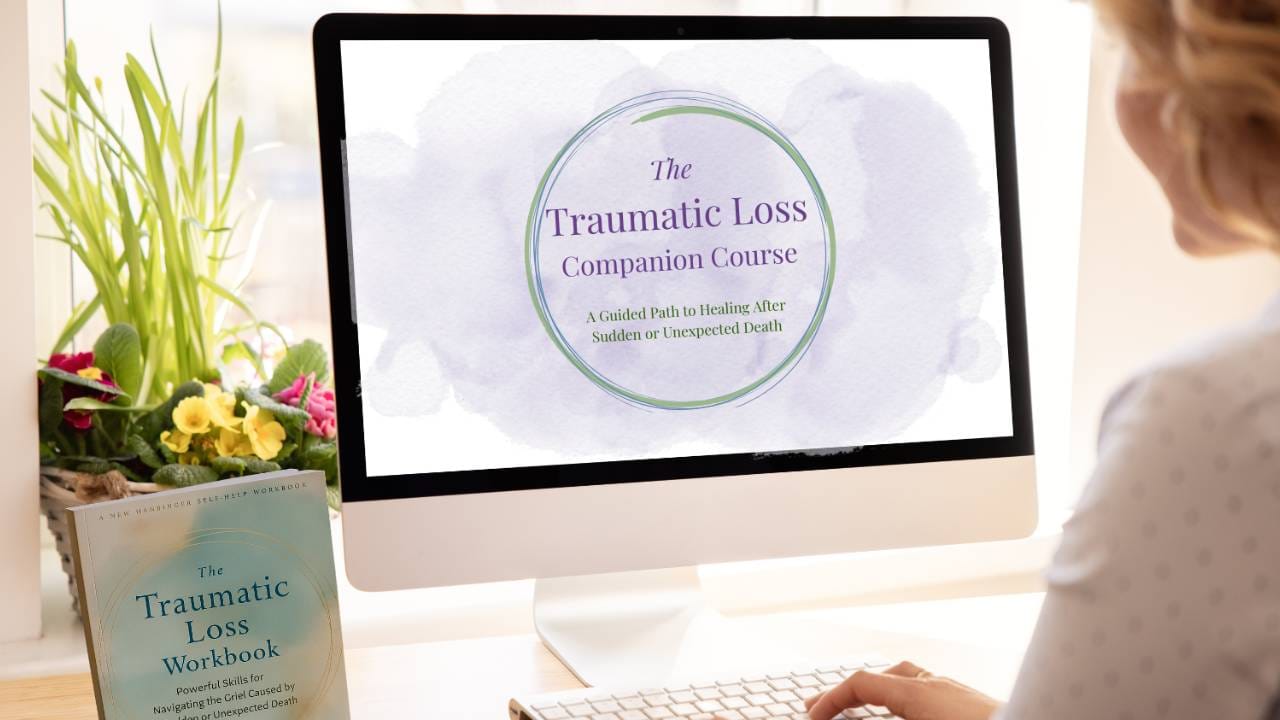
Created and narrated by Dr. Jennifer R. Levin, LMFT Author of The Traumatic Loss Workbook
Since its creation, the Traumatic Loss Companion Course has been a refuge for the grieving—a guided path through pain, chaos, and the search for meaning.
As you face the aftermath of a sudden, devastating death, you are invited to join this online program led by Dr. Jennifer Levin. With warmth and clarity, she offers video modules, guided practices, and community calls designed to support you through trauma and grief, step by step.
All are welcome to begin this self-paced journey of healing, understanding, and connection with others who truly understand.
💛 Enrollment open now. 12 modules online + monthly live calls.
🌊 Get Help from the California Grief Center

Brian Stefan, LCSW
Founder & Clinical Director
California Grief Center
You do not have to grieve alone. Whether you have lost someone, lost your way, or carry unspoken sorrow, there is a place for you here.
What We Offer:
Grief Therapy (in-person and virtual)
Catharsis Theater (monthly gatherings)
Virtual Support Groups (confidential and facilitated)
Grief Counselor Training (Fall 2025)
Our Philosophy: We do not treat grief as a problem. We treat it as a passage.
Consultations are always free.
💛 With care,
Brian Stefan, LCSW
Founder & Clinical Director
California Grief Center
✅ P.S. Know someone quietly grieving?
👉 Forward this letter. You never know who needs it.
💌 To get these in your inbox, sign up for The Grief Wave Newsletter.

Facing the hurt — together.